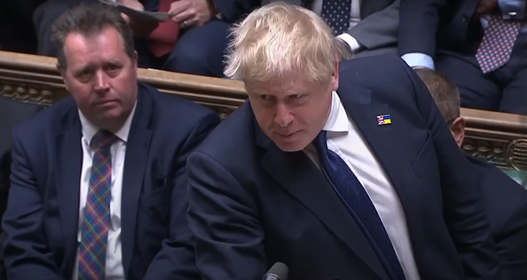Boris Johnson was at it again this week defending himself against the charge that he is a “bad apple” (Kevin Brennan MP), saying “I am proud of the way I have been able to offer leadership in difficult times” (https://bit.ly/3yTlKUP).
When you hear such from Johnson, what do you think he means by ‘leadership’?
According to the Oxford English Dictionary in 1933, the word ‘leader’ has been part of the English language from about 1300. The word ‘leadership’ did not appear until the first half of the nineteenth century when it was first defined in Webster’s An American Dictionary of the English Language in 1818as “the state or condition of a leader”, together with 13 definitions of the verb ‘to lead’. The contemporary Collins English Dictionary: 21st Century Edition (2000) defines leadership as: position or function of a leader; period during which a person occupies the position of leader; ability to lead; leadership qualities; and leadership of a group, a party, or a union.
There is a circularity involved with these types of definitions where one word is substituted for another that begins the confusion.
Surprisingly, and disturbingly, despite the millions of words written on the subject, there is not yet a settled answer to the question of what is ‘leadership’? Indeed, we must admit that in surveying the literature we were stunned by how many conflicting and contradictory definitions there are of what is a fundamental concept for thinking in the business, political, and social realms.
For instance, the long-run survey by Joseph Rost, in his Leadership for the Twenty-First Century (1991), covered 587 books over the century 1890 – 1990 and identified 221 definitions.
The current state of thinking about ‘leadership’ does not provide the clarity required for a having reliable conceptual tool for thinking with. It’s certainly a most confused notion which is largely ignored despite the pervasiveness of the term in our activities.
It is important to understand that the whole point about concepts and theories is to provide starting points to help our thinking reach correct conclusions about a relevant matter, such as in this case ‘leadership’. As Hannah Arendt saw them, “concepts are not, ends in themselves, but wellsprings from which we begin to do the work of thinking”.
The current disarray in this field is such that it is hard for practitioners to know where to start – to know what option to pick from the plethora of definitions available – what to take as a wellspring. Consequently, the choice of definition often appears arbitrary, without any clear explanation about why it was made. Many, of course, are not consciously using an explicit concept, but only an empty word without meaning, such as in the case of Boris Johnson. Even where a concept can be inferred from their utterances, the rationale for their choice seems to be no more than familiarity.
Has this confusion ever caused problems for you in your professional, social, and political life?



